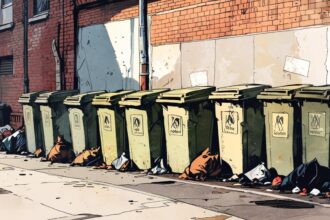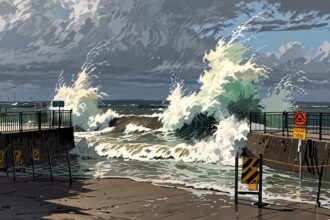Journalists face increased persecution in Russia as Antonina Favorskaya is detained for connections to Alexei Navalny, while the global community calls for the release of Evan Gershkovich. Amidst these crackdowns, a deadly attack in Moscow raises questions about the country’s security priorities.
In recent developments from Russia, journalist Antonina Favorskaya was detained for filming the final video of opposition leader Alexei Navalny before his death. Accused of having ties to Navalny’s “extremist organisation,” Favorskaya’s arrest marks a continuation of the crackdown on those affiliated with Navalny and his Anti-Corruption Foundation. Several journalists, including Alexandra Astakhova, Anastasia Musatova, and Konstantin Yarov—who reported being physically abused while in detention—also face persecution, underscoring the heightened risks for media professionals in the country.
In a separate note, the Archbishop of Canterbury, the Most Rev Justin Welby, called for prayers for Journalist Evan Gershkovich, who has been held in a Russian jail for over a year on disputed espionage charges. Gershkovich, a Wall Street Journal reporter, and others insist the accusations are unfounded, with the potential penalty being up to 20 years in prison. The call for prayers extends to all journalists imprisoned for their work, highlighting global concerns for press freedom.
Moreover, a significant security oversight was exposed following an attack on a Moscow concert hall, resulting in over 140 deaths. This incident occurred shortly after Russia designated the LGBTQ+ “movement” as extremist, aligning it with groups like al-Qaida and the Islamic State in a government register. Criticism has mounted against President Vladimir Putin’s administration for prioritising the suppression of dissent over addressing genuine security threats. Despite a U.S. warning about a potential attack, Russia’s security measures failed to prevent the tragic incident. The U.S. Ambassador Lynne Tracy has voiced demands for Gershkovich’s release, denouncing the Kremlin’s use of American citizens for political leverage.
These series of events reveal a tense landscape in Russia concerning media freedom, political dissent, and security apparatus focus, sparking international concerns over the treatment of journalists and the effectiveness of counter-terrorism strategies in the country.













